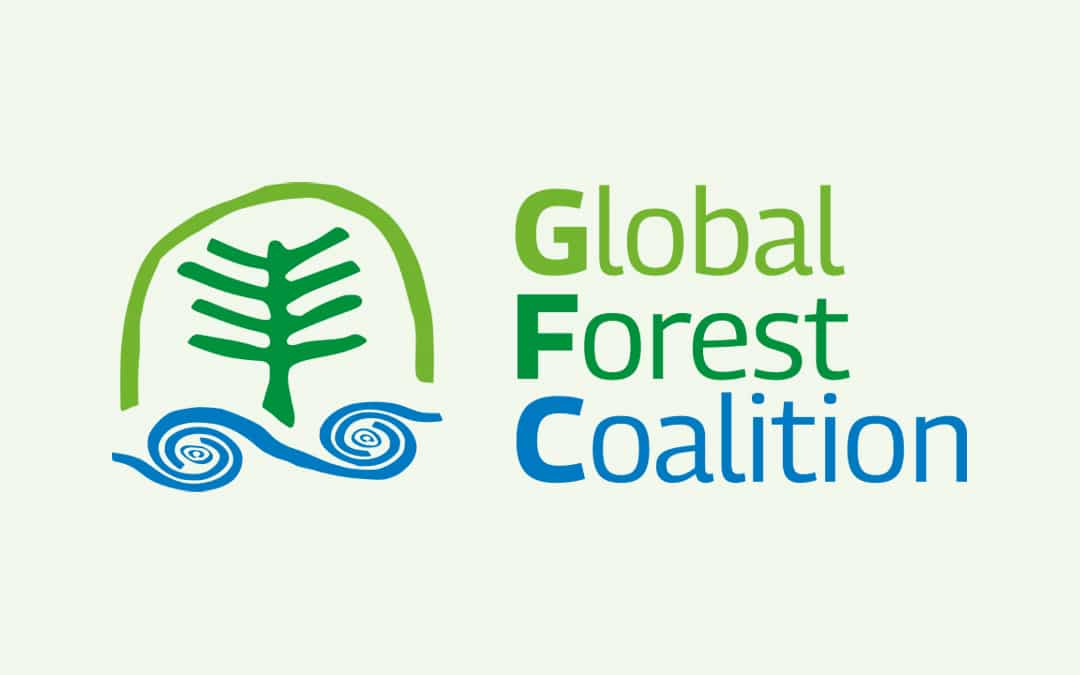Dr. Manmohan Singh
Prime Minister of India
Government of India
New Delhi
Jan 24, 2013
Subject: Concerns on possible dilution of MOEF’s circular of July 2009 on compliance of Forest Rights
Act for projects requiring forest diversion
Dear Dr. Manmohan Singh
This is with reference to the recent news report1 according to which, your office has asked MoEF and MoTA to ease regulations or processes for compliance to Forest Rights Act and related circulars to enable easier clearances of projects requiring forest land diversion. If this report is accurate, it is a matter of great concern from a perspective of both environmental and social justice. Any such attempt at easing processes that bypass the Forest Rights Act will also be illegal, and violative of the constitutional rights of citizens to be part of decision-making affecting their lives and livelihoods.
The news article mentions that it is being felt by the government that gram sabha consent is not necessary in cases where the project has to go through a public hearing process (applicable to all projects which require environmental clearance in addition to forest clearance). We strongly disagree with such an argument and believe that the two processes can not be equated because:
these are two very different processes, one is open public process for all directly and indirectly involved, whereas the other is specific to a village and its gram sabha members.
in reality most public hearings are conducted where many persons to be affected are not even made aware of the place or time of the hearing.
the results of the public hearing are in no way mandatory on project proponents or the government.
Moreover, the requirement of completing the process of recognition of forest rights before diversion (a requirement of the circular) cannot be achieved or ensured through a public hearing or through merely a statement from the State government.
The gramsabha after following all due and legal procedures must give in writing that the processes under the FRA have been completed if we indeed want to ensure that the ‘historic injustice’ is not constantly repeated.
Our second concern is regarding the possibility of limiting the scope of MoEF’s July 2009 circular only to cases ‘where there is significant impact on lives and livelihoods’. We believe that strict
1 ‘PMO pushes for dilution of environmental clearance norms’, Times of India, Jan 11, 2013, http://timesofindia.indiatimes.com/india/PMO-wants-tribals-consent-in-giving-forests-for-projectsdiluted/articleshow/17975932.cms compliance in letter and spirit to the above mentioned circular in all cases is of primary significance to be able to assess whether or not a diversion has ‘significant impact on lives and livelihoods’. We also believe that it is against the democratic principles to make centralized decisions about what extent of social impact that may be worth considering while diverting forests over which individuals and/or village community may have ‘inalienable’ forest rights vested through FRA. It is also important to bear in mind that the process of rights recognition under FRA is one of the few that acknowledges rights in their entirety including social, cultural, access and decision making rights of local communities to their community forest resources. Over-riding of such processes can lead to the danger of assuming that all rights can be monetized and settled instead of striving for negotiations on more equitable terms for reaching common understanding and consensus.
It is to be noted that as it is, compliance to the Forest Rights Act and the related circular is largely ignored at present. This has even been admitted by the Forest Advisory Committee or FAC (if a little late) in April 2012 in its minutes where it finally urged for documentary evidence to be enclosed in proposals. However, in its last meeting (December 22, 2012), the FAC has recommended clearance to two mining projects in Odisha (Agenda Item 12 and 13) even after admitting that no rights recognition under FRA, as required, had taken place in either. For these two diversions, the FAC has ordered eviction of all encroachers which in itself is a violation of FRA as it is legally incorrect to term any forest dweller as encroacher when the process of recognition of rights under FRA is not completed and leaves the decision of whom to evict completely open to interpretation and possible misconstruction.
The Minister of Tribal Affairs has through a series of letters2 raised concern at the complete neglect of such regulations in forest land diversions and the need for more transparency. His concerns and recommendations are absolutely essential to the continued well-being of India’s vulnerable forest dwelling communities. There is already much concern amongst such communities, and in civil society, regarding the decision to set up a Cabinet Committee on Investments that can over-ride ministries who are otherwise mandated to take expert decisions. We would also like to draw your attention to the letter addressed to you by Ministry of Environment and Forests dated 9th October 2012 which said:
It is important to note that environment and forest clearance requires careful and nuanced decision making to balance the interest of different stakeholders- conservation, local people’s livelihoods and economic growth. We have found that when decisions discount these interests, it leads to disputes and interventions by the courts and appellate authorities. It is in the interest of building investor confidence that the risk of environmental dispute, post clearance, is minimized and obviated. This can only be done by strengthening and not weakening, the current regulatory and decision making procedures and processes.
Your government has always pledged commitment to democratic decision-making and justice for the aam aadmi. The election manifesto of Indian National Congress (2009) declares: The Indian2 The concern has been expressed in the letter sent by Shri Deo to Chief Ministers on Implementation of Forest Rights Act on 24 May 2012, in the guidelines on FRA issued on 12 July 2012 and the letter addressed to Smt. Natarajan on 19 November 2012 National Congress is unwavering in its commitment to full Constitutionally-mandated devolution of funds, functions and functionaries to the panchayats.
In the present atmosphere, it is clear that in the processes of forest land clearance, it is the forest dwellers and the forests that seem to be getting more neglected rather than the investment companies. We, therefore, strongly urge you to:
Ensure that MoEF and MoTA are not pressurized by the PMO to bring in guidelines and clarifications for relaxation of the process for gram sabha consent and FRA compliance in forest clearance.
To instead, work towards strengthening transparent and democratic decision making process by supporting the need of rights recognition through FRA in general, and in areas requiring diversion, in particular.
We are hopeful that your office will give due consideration to our prayers.
Thank you,
Ashish Kothari/ Neema Pathak/ Shiba Desor, Kalpavriksh, Pune
Tushar Dash, Vasundhara, Odisha
Sumi Krishna, Bangalore
Sharad Lele, ATREE, Bangalore
Sankar Pani, Natural Justice
Tilottama Sarkar, Madhya Pradesh
Vanita Suneja, Oxfam
Sandeep Pattnaik, National Centre For Advocacy Studies, Bhubaneswar
Chandrakant Deokar, Oxfam India
Pratibha Shinde, Lok Sangharsh Morcha, Nandurbar
Dilip Gode, VNCS, Nagpur
Mohan Hirabai Hiralal, Vrikshamitra, Maharashtra
Vaishali Patil, ANKUR, Raigad
Surekha Dalvi, Shramik Kranti Sanghatana, Taigad
Milind Wani, Kalpavriksh
Nitya Ghotge, ANTHRA
Sham Singh Patane, Adivasi Adhikar Rashtriya Manch, Nandurbar
Ratansingh Sheraiya Padvi, Adivasi Adhikar Rashtriya Manch, Nandurbar
Kumar Shiralkar, AARM, Nandurbar
Ashok Pekari, Adivasi Adhikar Rashtriya Manch, Pune
Adinath Omble, SJVS, Thane
Pradeep Chavan, Kalpavriksh, Pune
Yash Sethia, IIT, Powai
Indavi Tulpule, Shramik Mukti Sangh, Thane
Shashikant Bhise, SIVS, Thane
Dilip Navghare, Vidarbh nisarg sanrakshan, Gadchiroli
Bansi Ghuvade, ADS, Raigad
Mahadeo Gillurkar, Khoj, Melghat
Gunvant D. Vaidya, AWARD, Chandrapur
Vijay I. Dethe, Paryavaran Mitra, Chandrapur
Purnima Upadhyay, KHOJ Melghat
Brian Lobo, Kashtakari Sanghatan
Dr. Kishor Moghe, GSMT, jalaka, Yavatmal
Rebecca S. David, Oxfam India
Nilesh Heda, Samvardhan
Gangadhar S. Atram, Dilasa, Yavatmal
Milind Thatte, Vayam, Thane
Vinayak Talkar, Vayam, Jawhar
Prabhakar Thakur, SAKAV, Raigad
Subodh Kulkarni, Jnana Prabhodhini
Devaji Tofa, Mendha Lekha
Suryabhan Khobragade, Sachiv Krishak Charcha Mandal, Saygara, Chandrapur
Rupchand Dakhane, Gadchiroli
Keshav Gurnule, Srishti, Gadchiroli
Sathish Gogulwar, Aamhi Aamchya Aarogyasathi, Gadchiroli
Gajanan Athavale, Rajarshi Shahu maharaj Bahuuddeshiy sanstha, Buldhana
Anand Bang, TISS, Mumbai




